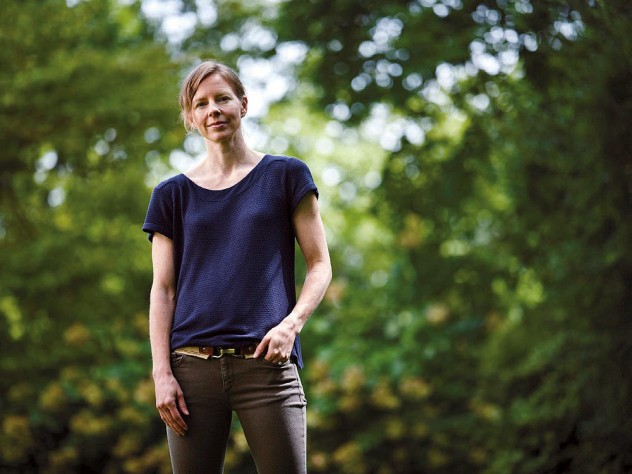New Yorker - "Daniel Bard Made an Improbable Comeback. Then He Had to Do It Again"
By Louisa Thomas
Louisa Thomas on Seattle Sports (Published in Grantland in Jan. 2014):
There is a lot of noise in football, and most of the noise says nothing. It is electric guitars in the television lead-in, jet plane roars, industrial sounds meant to signify manly manhoodness. It is loud suits, shouts of “Omaha!,” the groan and crunch of large men crashing into each other. It is Jim Harbaugh throwing temper tantrums and screaming and acting like a parody of a 3-year-old, for which he is considered to have a lot of passion for the game, because “passion” is apparently another word for noise.
You hear a lot about passion and noise in Seattle. It’s inescapable. Even if it didn’t hit your eardrums and settle in your jaw, even if it didn’t make the floor shake, it would be impossible to avoid, because no one would stop talking about it. It was everywhere and endless, like the small grit of rain in the concrete sky. It came from spotted owl activists and the loggers who lost their jobs because of spotted owls. There were punks with safety pins stuck in their skin; dads in Eddie Bauer; girls wearing suede wedges and Earl Thomas jerseys; Starbucks baristas; and the artist who graced my Facebook page with a close-up of his Beast Mode grill. Maybe it had something to do with being rooted on the margin of the country, caught between mountains and water. Maybe it had something to do with being the spiritual home of both grunge and tall lattes, counterculture and mass culture. In the corner of the press box at CenturyLink Field, a barista calmly steamed milk for grande mochas while the stadium shook.
Maybe it went deeper, back to the late 1970s, when the city was mired in depression, reeling from cutbacks at Boeing, unemployment around 12 percent. A billboard by Sea-Tac Airport read, “Will the Last Person Leaving SEATTLE — Turn Out the Lights?” That’s when the city got a football team to cheer for (and to pay for; years after the Kingdome was demolished, the city is still paying down its debt). The team was terrible for a long time and nearly left town. But then the Sonics did leave, and the Mariners sucked, and football — football was what it is in America. It was Sunday and beer and screaming; it was marine blue and gray-moss green; it was savagery and community and a hell of a lot of fun. It was for guys who worked in airplane factories and who programmed PCs, transplants in a city where it can be so hard to make friends that there’s a phrase for it, the Seattle Freeze. Everyone could be the 12th Man. Winning, which Seattle started to do, no doubt had a lot to do with it. But not everything. Even the excitement when the Seahawks made the Super Bowl in 2005 doesn’t match what it is now, a friend who’s a huge Hawks fan told me. “The craziness surrounding the Seahawks is like the city’s collective id exploding,” he said. And it turned out that the city’s deepest driving desire was to make a really, really big noise.
Especially against San Francisco. Not that the opponent on the field totally matters — Seahawks fans, after all, made noise against the Saints just to be more noisy than the fans in Kansas City. Still, it probably helped that it was San Francisco, with its gold rush and golden hills, its golden light on the Golden Gate Bridge and its long history of golden quarterbacks in golden pants. San Francisco, with its iPhones and iPads and Google doodle, and its claims to the creative spirit, as if an Apple Store didn’t have the vibe of a totalitarian state with good Wi-Fi. Add in the hatred between the teams.
Plus, the noise was effective. It upset snap counts and rattled opponents. And it made the game, which seems ever more packaged and remote, made for TV money, seem like it was theirs.
Louis Thomas on her writing methods (Published in Harvard Magazine in Nov.-Dec. 2020):
LOUISA THOMAS ’04 is at her best in transit. Her finest work develops not when she sits down to write, but on her run directly before. That’s when she plots a story in her head, teasing out disparate threads and weaving them into a cohesive narrative. “Sometimes it will seem a little bit insane,” she admits. “Even if I have a tight turnaround deadline, I’ll go run for 10 minutes or go for a walk—just to get going.” When she sits down to write, it’s pretty obvious to her whether she’s hitting the vein or trying to force it. And now, working on an article about baseball’s pandemic start under a pressing deadline, she’s trying to force it.
LOUISA THOMAS ’04 is at her best in transit. Her finest work develops not when she sits down to write, but on her run directly before. That’s when she plots a story in her head, teasing out disparate threads and weaving them into a cohesive narrative. “Sometimes it will seem a little bit insane,” she admits. “Even if I have a tight turnaround deadline, I’ll go run for 10 minutes or go for a walk—just to get going.” When she sits down to write, it’s pretty obvious to her whether she’s hitting the vein or trying to force it. And now, working on an article about baseball’s pandemic start under a pressing deadline, she’s trying to force it.




No comments:
Post a Comment